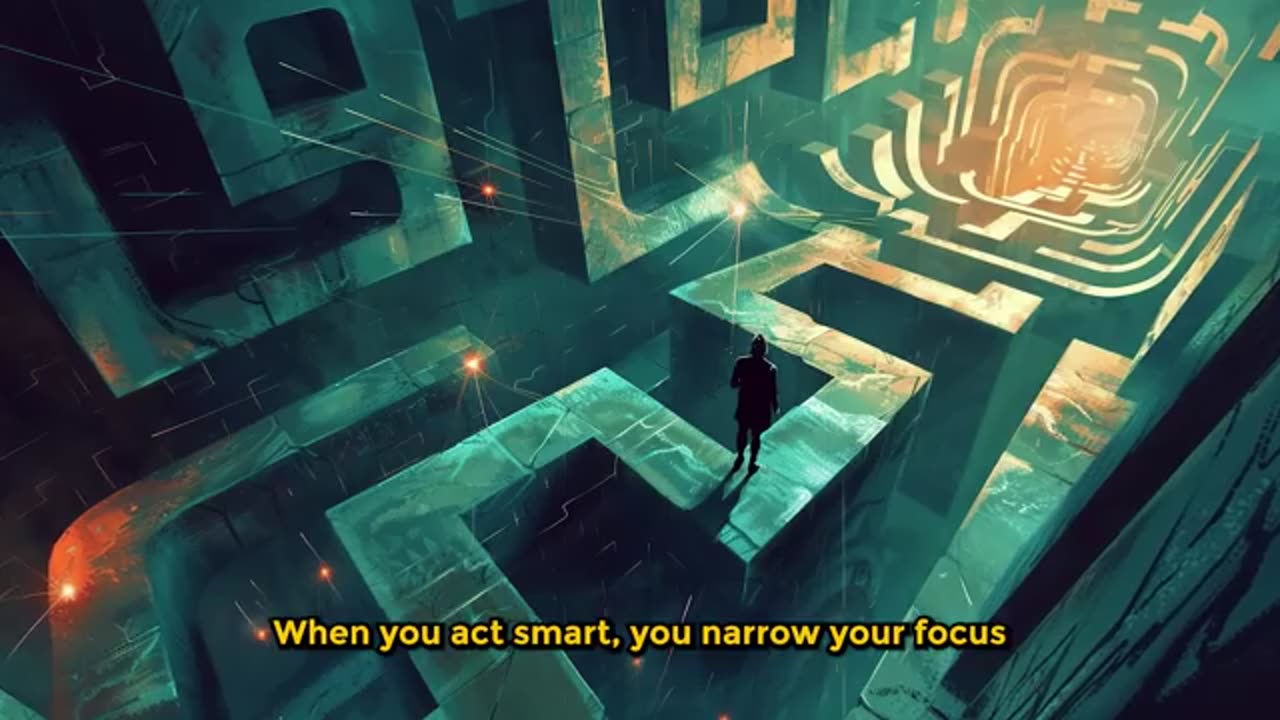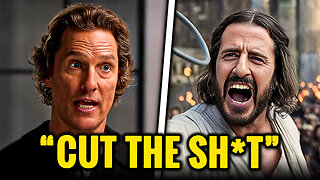Premium Only Content

Why Acting Smart is the WORST Thing You Can Do – Machiavelli
Source:
https://www.youtube.com/watch?v=dutkWCH5eXE&t=721s
This video, based on the principles of Machiavelli, argues that acting smart is counterproductive and can lead to your downfall. The central thesis is that the desperate need to appear intelligent is a catastrophic weakness that makes a person a target.
Summary of "Why Acting Smart is the WORST Thing You Can Do – Machiavelli"
The video details how displaying one's superior knowledge or brilliance in public, such as by correcting others or offering clever observations, does not earn respect but instead creates enemies and invites attack. Historically, brilliant advisors like Thomas Moore and Seneca were executed because their intelligence threatened their rulers (Henry VIII and Nero, respectively).
The Perils of Performance
Threat and Distrust: People are naturally threatened by and mistrust intelligence, and they follow those who make them feel understood, not those who make them feel inferior.
Insecurity: Constantly demonstrating intelligence is seen as validation-seeking behavior and a sign of deep insecurity, not strength.
Ego vs. Learning: When you try to look smart, you stop learning, as your ego becomes more important than the truth. You become intellectually stagnant because admitting you are wrong or questioning your knowledge would damage your "performed" intelligence.
The Power of Silence and Underestimation
The video advocates for strategic silence and the power of being underestimated:
Underestimation is an Advantage: When others underestimate you, they come to a conversation underprepared, reveal their strategies and weaknesses, and become careless with their secrets. This gives you the freedom to navigate and work on your ideas without constant scrutiny.
Never Defend Yourself: According to Machiavelli's principle, "He who explains submits." When attacked or questioned, defending yourself is a sign of weakness because it proves you are low enough in status to need to explain. Remaining calmly silent forces your accusers to fill in the blanks, often leading them to overestimate your power and question their own position.
Genuine Intelligence vs. Fake Intelligence
The video contrasts the performance of intelligence with its genuine characteristics, noting that "Real intelligence whispers, fake intelligence shouts." Genuine intelligence is defined by:
Insatiable Curiosity: Admitting ignorance and constantly asking insightful questions.
Open-Mindedness: Being willing to look at situations from different perspectives and change one's mind.
Adaptability and Self-Control: Not being brittle or defensive when facing criticism or mistakes.
Solitude: Preferring time for reflection and study over the constant need for an audience to validate one's worth.
The conclusion is that the greatest deception is not lying about what you don't know, but rather hiding what you do know. The most effective strategy is to be smart, but to appear simple, using your intelligence as a tool to conceal rather than a weapon to wield.
-
 1:27:22
1:27:22
Game On!
18 hours agoThursday Night Football NFL Week 8 Betting Preview: Vikings at Chargers!
8.03K1 -
 15:02
15:02
Demons Row
12 hours ago $1.49 earned8 Hardest Patches to Earn in 1% Motorcycle Club Culture 💀🏍️
25.4K6 -
 10:27
10:27
Adam Does Movies
21 hours ago $0.43 earnedShelby Oaks - Movie Review
9.42K7 -
 6:08
6:08
Blackstone Griddles
14 hours agoAlmost Famous French Toast on the Blackstone Camping Griddle
11.9K -

BEK TV
1 day agoTrent Loos in the Morning - 10/23/2025
9.76K1 -
 LIVE
LIVE
The Bubba Army
22 hours agoImmigrant Trucker KILLS Again! - Bubba the Love Sponge® Show | 10/23/25
1,394 watching -
 LIVE
LIVE
Side Scrollers Podcast
3 days ago🔴FIRST EVER RUMBLE SUB-A-THON🔴DAY 3🔴WAKE YOUR ASS UP!
1,103 watching -
 19:16
19:16
Jasmin Laine
17 hours agoCBC Gets FACT-CHECKED By Guest—Carney BEGS Poilievre For Help
24.1K12 -
 8:50
8:50
The Shannon Joy Show
15 hours agoBREAKTHROUGH Cancer Treatments With Dr. Makis
11.5K3 -
 9:10
9:10
Faith Frontline
14 hours agoMatthew McConaughey Just Said What No Celebrity Dares to About Jesus
14K2